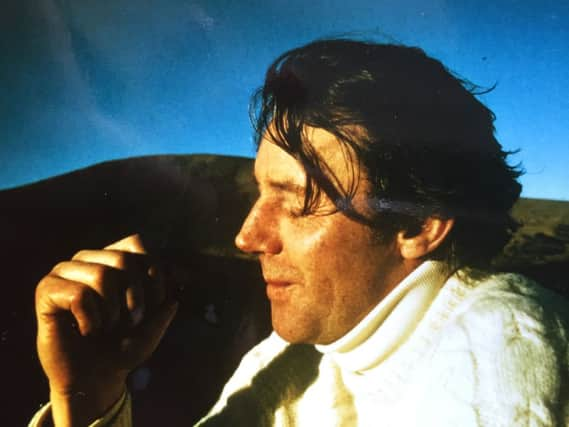Obituary: Stanley Roger Green, writer, poet and architect


STANLEY Roger Green was a kenspeckle Edinburgh character with a varied career and multiple interesting talents.
A Leither born, he was brought up in a tenement flat in Stockbridge, one of seven – three brothers, three sisters. His father, a ship’s engineer at sea for long periods, left his mother to look after the children.
Advertisement
Hide AdAdvertisement
Hide AdAged ten, he was evacuated during the war to Sauchie in Clackmannanshire, where he became dux of the local school and developed a love of the countryside. That love, his subsequent return to Edinburgh, student days at Leith Nautical College, service in the Merchant Navy, Army National Service in Libya, were all to inform his later books and poetry.
Returning from his army service, he studied architecture at Edinburgh College of Art and, at a student party, he met his wife to be, Eleanor. They married in 1961 and had two children, Malcolm and Alison. Stanley briefly pursued his architectural career in Bermuda and Tralee but his main work was in and around Edinburgh.
According to friend and fellow student Anthony Finlay, he was an outstandingly meticulous draughtsman both in his architectural drawings and his sketches. His police station in Balerno has an honourable mention in The Buildings of Scotland.
Among his varied enthusiasms were music, country- and hill-walking and a wide range of reading, particularly in the “realms of gold” in the pantheon of Greek poetry and history.
His daughter Alison recalls how his love of walking in Cramond was often a ramble through the Greek byways of Herodotus or other classical texts. Malcolm and Alison also recall convivial musical evenings, Stanley on self-taught piano and friends with various instruments.
In the late 1970s, his young Czech friend Sasa would sing Purcell, Handel and various lieder to his piano accompaniment interspersed with cups of tea and dissertations on the glory that was Greece. Writing and poetry were, however, Stanley’s great passions. In the 1950s and 1960s Edinburgh’s Rose Street pubs were the haunts of an illustrious coterie of artists, musicians, BBC folk, writers and poets: Hugh MacDiarmid, Norman MacCaig, Sydney Goodsir Smith, George Mackay Brown and others. Stanley, a younger brother poet, admired and was inspired and influenced by them.
His prose writings were colourful and entertaining, drawn from his life on a tramp steamer (1989’s Whither O Ship), his reminiscences of his pub heydays (A Clamjamfray of Poets) and his three volumes of verse express his love of landscape, of the lasses and his sense of fun and wit: A Suburb of Belsen (1977); Advice to Travellers (1990); and Waiting for the Mechanic (1998). The innovative group of the cream of Scottish poets, writers and musicians, The Heretics, which met monthly in the New Town Hotel in 1970s, gave Stanley a platform for his poetry and prose reading of his work.
A fitting elegy for Stanley would be this verse from his poem “The Sea My Nurse”.
Orion swung from masthead to
funnel
The Southern Cross performed
trapeze acts
Along the tightrope of the triatic
stay
And I would fall asleep
The sea my nurse
The swaying world cradled with
stars.
Stanley died peacefully in Eildon House Nursing Home and is survived by children, Malcolm and Alison, and grandchildren David, Tom, Riccardo and Nadia.